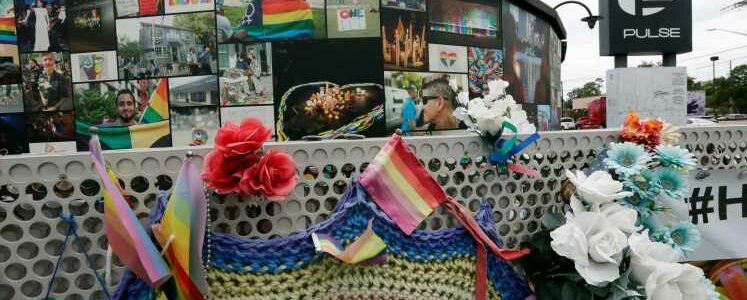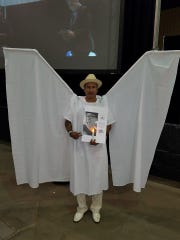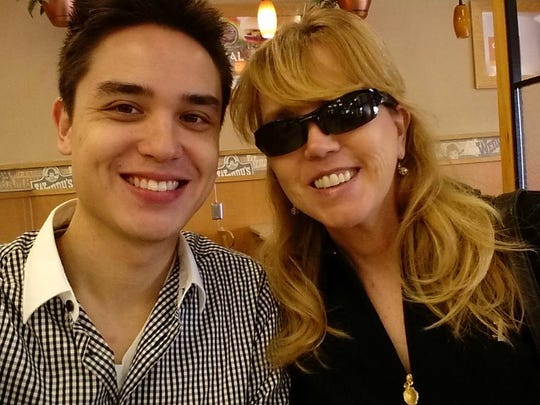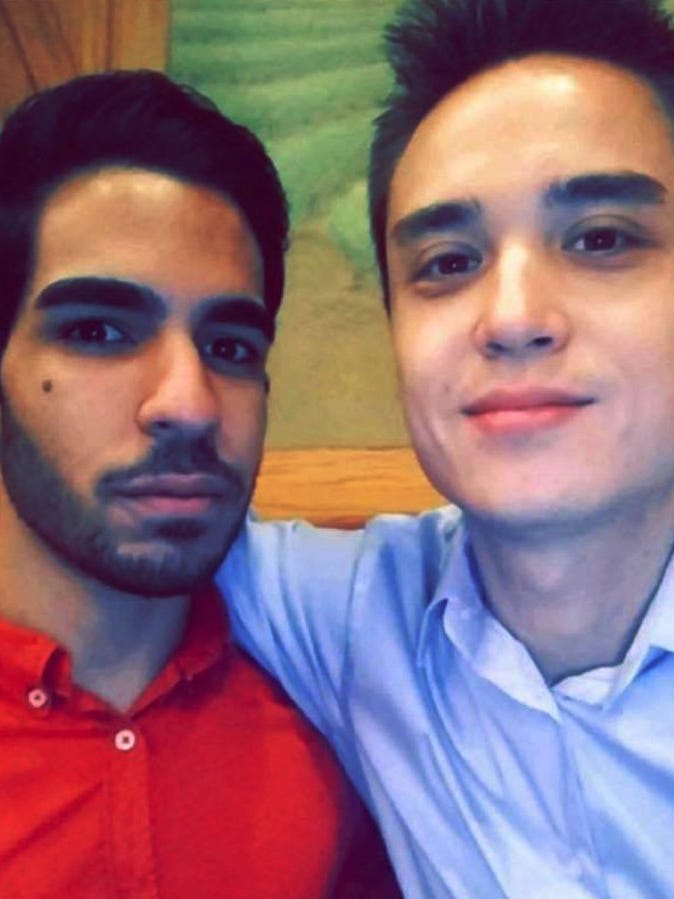
‘Keep dancing Orlando’: Five years later, Pulse nightclub shooting survivors seek to embody strength of LGBTQ community
It’s been five years since the country woke up to the news 49 people were gunned down in a gay nightclub in Orlando, Florida — an attack that ripped away the innocence of a community known for family vacations to Disney World and with it leaving the LGBTQ community on edge during a month of Pride celebrations.
It was the nation’s deadliest mass shooting, a uniquely shocking and undesirable mantle that Orlando held for only one year before an attack left 60 dead during a country music festival in Las Vegas. In a country plagued by gun violence and an almost steady stream of mass shootings, the death toll in Orlando was shocking and thrust the city at the epicenter of conversations about gun control reforms and terrorism.
Survivors of the attack and those who lost loved ones at Pulse nightclub in the early morning hours of June 12, 2016, are still grappling with the trauma of that night — an attack that targeted members of the LGBTQ community during a month dedicated to celebrating acceptance and gay pride.
‘We still stand strong’: Congress passes legislation to make Pulse nightclub a national memorial
It was Latin Night at the club. Reggaeton blared. Clubgoers smiled and danced. Then came the pops that everyone thought was part of the music. Some attempted to escape the packed dance floor as bullets started to pour from the gunman’s rifle. Others didn’t have time to react. It was the nation’s deadliest mass shooting at the time, a somber and undesired mantle that was passed off to the city of Las Vegas just one year later when 60 people were killed attending the Route 91 Harvest music festival.
Amid the trauma, years of recovery and new paths set by survivors and family members of those lost came a sense of community that brought the Orlando community together. And for some, the devastating anniversary converging with Pride Month serves as a mission and reminder of the need to continue pushing forward, not only for themselves but for the larger LGBTQ community.
A need to keep dancing
Orlando Torres still doesn’t feel safe in a public restroom.
He gets flashbacks to the black stalls that surrounded him that night, the gunshots, screams and the hours he was held hostage as the gunman called authorities, making clear his allegiance was to the ISIS terror group and threatening he had explosives. It took hours before Orlando Police officers were able to break through a concrete wall in the building, forcing a shootout between officers and the gunman.
Orlando Torres at a Pulse nightclub remembrance ceremony one year after the attack that killed 49 people in Orlando, Fla. Torres was one of 49 people who dressed as angels to honor those killed in the attack. (Photo: Courtesy of Orlando Torres)
Torres made it out through the breach after the gunman was killed.
Torres said fears that followed after the shooting didn’t prevent him from living. He’s been able to go back to nightclubs and finds support from other survivors.
“It wasn’t it wasn’t my time. It wasn’t that day,” he said. “We have that motto here that says, ‘Keep dancing Orlando,’ because if you don’t, they win, the terrorists win.”
The celebrations for Pride Month, which in Orlando is celebrated as Gay Days, are an important reminder, he says, that the LGBTQ community carries on more strong than ever.
“There are mixed emotions,” he said. “It’s difficult because of the emotion of what happened and it’s hard to do the things we did before to celebrate because of the tragedy of the shooting. But it’s important.”
Orlando victims: Their stories
Each year, the community holds remembrance ceremonies to honor those lost in the attack. Last year, due to COVID-19, events were done virtually. It’s a chance for Torres and other survivors to support one another on a day that connected them all forever.
“It’s going to be more emotional this year,” Torres said. “It’s hard to believe it’s been five years. It still feels like yesterday.”
Orlando Torres five years after surviving the shooting at Pulse nightclub in Orlando, Fla. that killed 49 people, which at the time was the nation's deadliest mass shooting (Photo: Courtesy of Orlando Torres)
Proof that survival through the unimaginable is possible
Christine Leinonen plans to act like today doesn’t exist. She won’t go to memorial events to remember the attack and its victims. She has yard work to do and might go to bed early.
It’s a day she says she wishes didn’t exist – the one that marks when her son, Christopher “Drew” Leinonen, was taken from her at Pulse nightclub.
“If I could erase it as a day on the calendar, I would,” she said. “There isn’t any honor on that day. What am I going to? Kneel in front of his urn that’s sitting on my bedroom dresser filled with his ashes? I mean, is that is that what I should be doing?”
Christine Leinonen and her son, Christopher "Drew" Leinonen, who was killed in the Pulse nightclub shooting. (Photo: CONTRIBUTED PHOTO)
The morning of the attack, her tear-soaked face was plastered on cable news stations. She tried calling her son again and again but didn’t know for more than 30 hours that he’d died at the nightclub with his boyfriend, Juan Ramon Guerrero.
Leinonen says it’s hard to believe she made it five years and shows proof of perseverance after tragedy.
“I didn’t think I would survive a day, two days, a week, a month, a year. So, it’s insane to think that I survived five years,” she said, noting the episodes she’d have where she felt like her heart was ripping in half. “At the beginning, I thought this is never going to end. So why am I even here? Why should I even be alive?”
This undated photo shows Christopher Andrew Leinonen, right, one of the people killed in the Pulse nightclub in Orlando, Fla., early Sunday, June 12, 2016. A gunman wielding an assault-type rifle and a handgun opened fire inside the nightclub, killing dozens in the worst mass shooting in modern U.S. history. The man at left is unidentified. (Photo: (Facebook via AP))
After the attack, she worked to help set up an LGBTQ advocacy foundation named after her son and attended Pride Month celebrations in New York and Orlando — something she never got the chance to do with her son when he was alive.
Leinonen said she was always supportive of her son being gay but never played an activist role, something she regrets now. She noted the years since his death have helped further the country’s understanding of the gay community.
“I didn’t realize how many kids were out there who didn’t have supportive communities. They didn’t have supportive parents or grandparents or family or friends. So that’s why they need pride,” she said. “After Christopher died, my eyes were just opened.”
“I realize now how important Gay Days and Gay Pride and all these parades are,” she said. “It isn’t just a fun celebration. It’s stating a message.”
Tony Marrero was shot four times in the back with one bullet that also hit his arm at Pulse nightclub in Orlando, Fla. His recovery from the 2016 shooting was lengthy and his scars, he says, are proof of his strength and the resilience of the LGBTQ community. (Photo: Courtesy of Tony Marrero)
Scars that show resilience, strength
The scars are always there to remind Tony Marrero.
Even during this month when he tries to distract himself from the memories of five years ago. The pops. The intense pain when bullets hit him. The lengthy period he played dead praying the gunman would leave him alive.
But over time, those scars and memories became something else: proof of strength and resilience.
“That night, that specific night, everybody was having such a good time and everybody was just dancing. So let’s continue dancing and remembering them,” he said. “We cannot let one tragedy hold us back. We cannot let a tragedy like this define, you know, the future of the LGBTQ community. On the contrary, it needs to push us forward. It needs to make us stronger.”
Tony Marrero (left) is pictured with his fiance, Cris Huertas five years after the Pulse nightclub shooting in Orlando, Fla. (Photo: Courtesy of Tony Marrero)
Marrero still prepares an emergency exit plan when he enters a building, something he’s done since that night when he was readying to leave Pulse nightclub and the attack began. He was separated from his friend, Luis Vielma, when the shots started.
He later learned Vielma died in the attack.
But the trauma hasn’t stopped Marrero from living, or from going to a nightclub again.
After being shot four times in the back, the path to recovery was long. Marrero says he had a choice: get up and take back his life or don’t and let this attack define him.
“I’ve trained my brain to focus on moving forward, and still remembering those we lost that night. But continue to live life to the fullest because I get a second chance at life. I like to focus more on that aspect of the tragedy,” he said. “If I don’t, I’m just going to get depressed and I’m not going to get out of the hole. My scars are always gong to remind me but I’ve taught my brain that those are not just scars, those are my battle wounds. And they just remind me of how strong I was and how strong I am.”
Last year, Marrero got engaged. He’s now planning his wedding.
Source: Read Full Article





